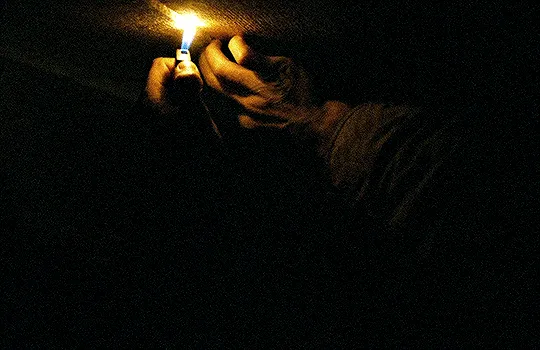SPOORLOOS & THANATOPHOBIA
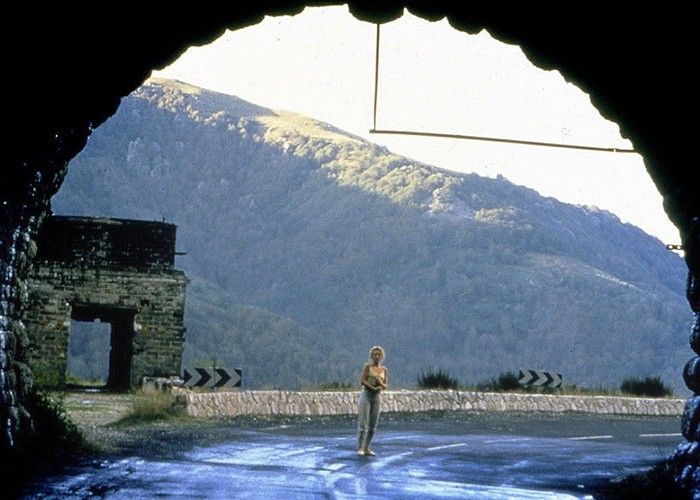
When I was young, I had a pronounced fear of death. The thought of losing anyone close to me was impossible. Often, anxious thoughts of death would keep me awake at night as I would feel overwhelmed by the enveloping darkness of my bedroom.
As I got older, this fear became sublimated into a more generalised anxiety which resulted in an avoidance pathology, or in other words, PLS (Permanent Layabout Syndrome).
If one film epitomised this enduring fear of mine, then it would be George Sluizer's 1988 Dutch classic Spoorloos (The Vanishing).
Rex Hofman : Sometimes I imagine she's alive. Somewhere far away. She's very happy. And then, I have to make a choice. Either I let her go on living and never know, or I let her die and find out what happened. So... I let her die.
The year was 1991. I was in my second year at secondary school and had been, thanks to my cineaste friend Gorodish, developing a taste for European cinema.
Both BBC2 and Channel 4 back then would show foreign (mostly European) films late at night, films that often wouldn't be easily accessible to watch at any cinemas locally.
I can think of only a few films in my early life which traumatised me as much The Vanishing. The first one was Nicholas Roeg's 1970's movie Walkabout (specifically the heatstroke/scorpion scene) which I stumbled upon on television one afternoon at the neighbours of my South London grandparents in Streatham; the second was Nicholas Ray's In A Lonely place (1950) and the third was Spoorloos (The Vanishing) which I first watched as a teenager.
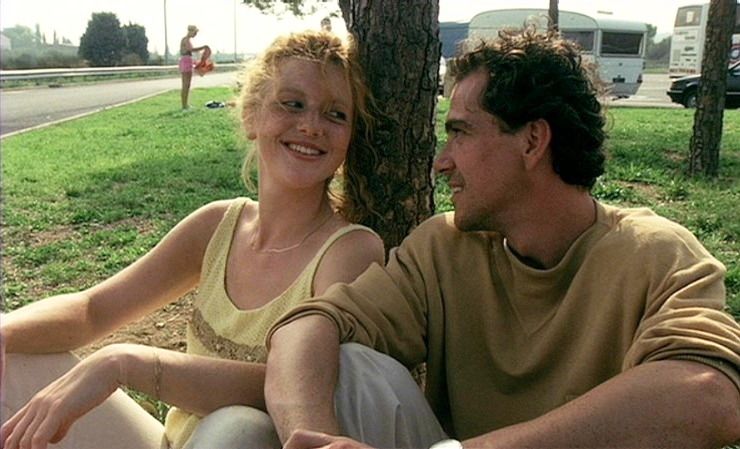
It was a Monday night, if I remember correctly and from the opening scene of Spoorloos I felt an intuitive sense of dread. The late, great film director Stanley Kubrick has been quoted as saying that Sluizer's film is the most frightening ever made and I would have to agree with the master. Perhaps only David Lynch's Fire Walk With Me (1992) comes close to rivalling the unsettled feeling of horror that unfolds during a viewing of Spoorloos.
The atmosphere of the film is unusual and feels both naturalistic and melodramatic in equal measure. The first fifteen minutes eerily foreshadow the final climatic horror with unerring mastery.
A young couple find their car breaks down in a dark mountain tunnel and suddenly the young woman recalls a dream she'd had the night before about a golden egg.
Saskia Wagter : My nightmare. I had it again last night.
Rex Hofman : That you're inside a golden egg and you can't get out, and you float all alone through space forever.
Saskia Wagter : Yes, the loneliness is unbearable.
[pause]
Saskia Wagter : No. This time there was another golden egg flying through space. And if we were to collide, it'd all be over.
After ruminating on her dream, Rex has to go in search of some fuel, much to Saskia's distress. She remains in their broken down car.
When Rex returns, he panics as Saskia is no longer in the vehicle. Driving slowly down the long dark tunnel, he eventually finds her on the other side of the entrance, much to his great relief.
We're hardly anyway into the movie at this point but already the key themes at the heart of the story are already well in place : separation, loss, searching and finally reunion.
Later, a repeat of the underpass scene plays out at a gas station where the couple have been taking a break from their journeying on the road; Rex loses Saskia for a second time, only this time it's forever.
From this point on, Rex will become like a frantic Orpheus, forever searching for Saskia, his very own red haired Eurydice whom he never finds. Unable to shake off the memory of her vanishing at the petrol station, he spends all his waking hours looking for her, putting up missing person notices and making pleas on public television for any information about her whereabouts.
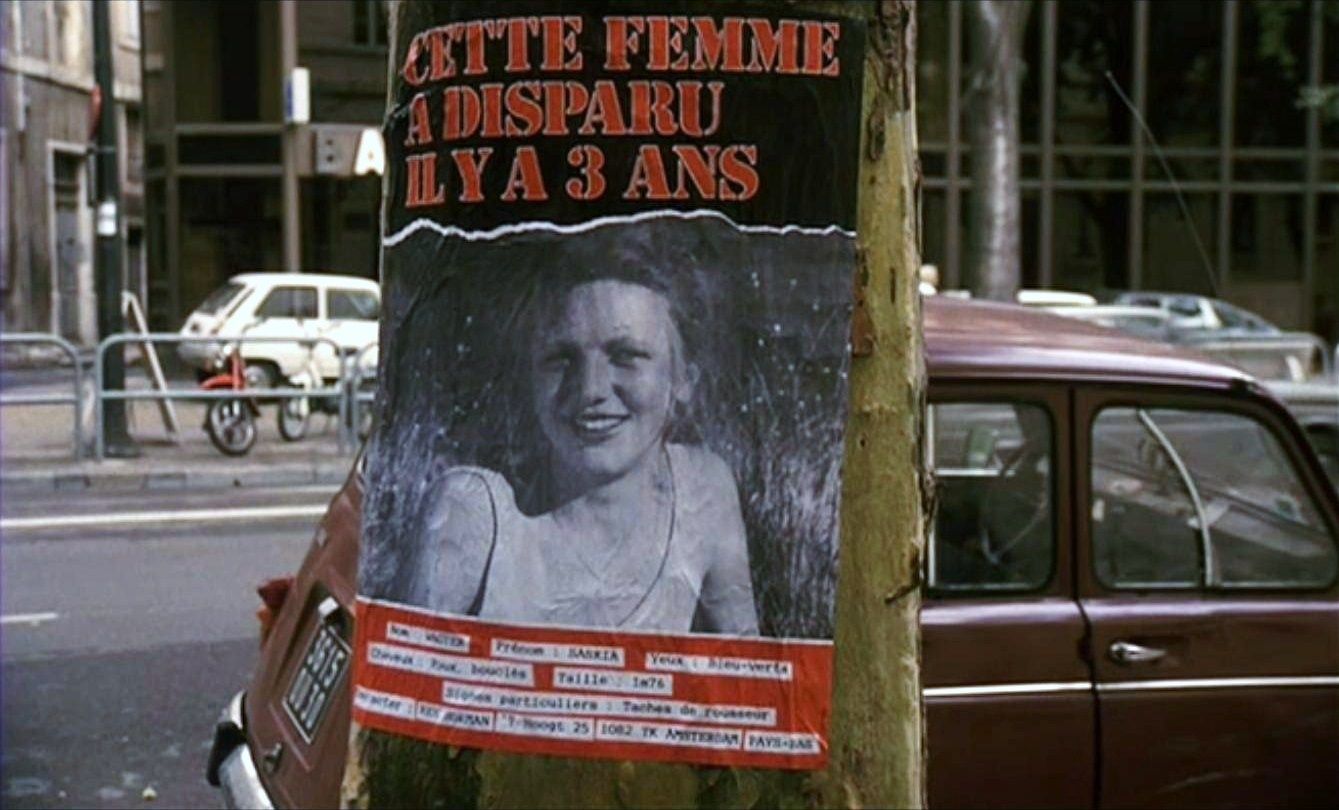
Although we see the creepy chemistry teacher Raymond early in the film, it is only in the second act where his presence slowly begins to take over the entire film like a looming shadow of death. If evil has a face that disguises itself with absolute normality then it must be the actor Bernard-Pierre Donnadieu's portrayal as the sociopath Raymond who plays with the tormented Rex like a cat with a ball of wool.
We sense he has something to do with the disappearance of Saskia but no clear indicators of this are made available to us until much later in the film.
In the watching of the film, the audience become as obsessed as Rex does with regards to the mystery surrounding Saskia's disappearance. The more invested we are in resolving the fate of her story, the more of a hammer blow the ending creates for us, the viewers.
Although we never have reason to believe that he will find Saskia again, we desperately hope that Rex will be finally reunited with his love.
And in the end, he is in some respects reunited with Saskia but in circumstances so horrific it still leaves me in a cold sweat.
Having experienced sleep paralysis a few times in my life, I have experienced that most disturbing sensation of being trapped in a confined space without any seeming way out. The penultimate scene of Spoorloos portrays exactly the same feeling to terrifying effect.
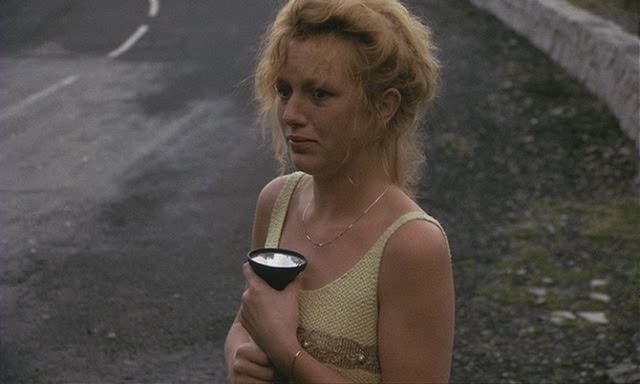
The following morning after watching the movie, I found myself never so happy to see daylight before I headed off to school.
Sometimes a film stays with you like a trauma; Spoorloos has continued to have that effect on me.
It was just a few years ago I was finally re-acquainted with the film and was amazed at how the power of its quiet horror continued to affect me.
Something about that independent Euro movie atmosphere in the 1980's that caught just the right balance between Hitchcock and Clouzet.
Can someone turn the light on?
